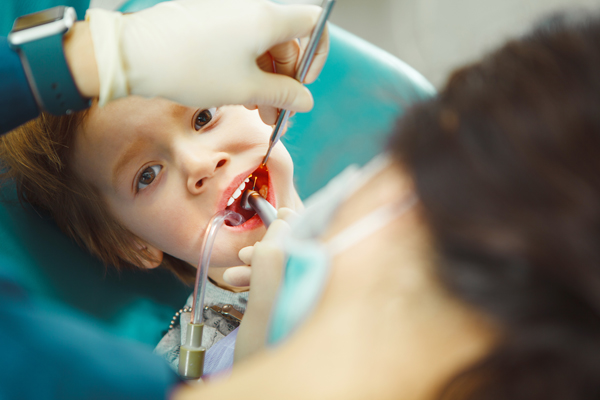What to Expect After Your Child’s Pediatric Root Canal

A pediatric root canal can restore your child’s infected tooth. The pediatric dentist will assess the child’s painful tooth. Recommending this procedure can prevent the infection from spreading. Here are the details on what to expect after your child’s scheduled pediatric root canal.
Preparing the child
Preparing the child well can cause the young patient to relax and cooperate. The pediatric dentist will then have an easier time performing the procedure. Studies show that anxiety comes from an unknown future. Discuss the procedure with the child. Doing so will help the child understand what will happen.
Explain the importance of a pediatric root canal. Tell the child how the procedure will happen from beginning to end. Use the most basic language and avoid big words that sound scary. Try to answer the child’s questions. The pediatric dentist can answer the ones the parent cannot.
Show educational pictures or videos about the pediatric root canal. Explain each step as the child sees it. This experience can remove fearful thoughts about the treatment day. Stress the importance of cooperating with the dentist. Keeping the mouth open and staying still are important tasks to maintain. Parents being there throughout the appointment can help encourage the child.
Factors that cause discomfort
This procedure is invasive. It is normal for the child to experience mild swelling, pain, and tenderness. Many factors can cause these issues. The following are some of the main ones:
- In some cases, the dental instrument for cleaning out the tooth’s root canal damages the surrounding soft tissues. The damage can then cause discomfort.
- A temporary filling higher than the neighboring natural tooth can cause a harder bite on that area. This matter causes sensitivity and soreness in the treated tooth. The discomfort should fade in a few days.
- Tiny nerves in the surrounding tissues and ligaments remain swollen after the pediatric root canal. The nerve endings signal pain and cause the areas to be sore.
Pain management
Technological advances in dentistry make a pediatric root canal more comfortable for kids. The pediatric dentist will numb the area and clean the damaged or infected pulp. The process will remove the cause of the discomfort. Pain can still occur once the numbness fades. The dentist will recommend over-the-counter medications to manage the discomfort. Using cold compresses can relieve swelling and pain as well.
Proper aftercare
The pediatric dentist will also provide aftercare instructions after the pediatric root canal. Aside from good pain management, the parent or guardian must also care for the child’s mouth. The most important way to do so is to continue to promote good oral hygiene. Proper flossing and brushing every day will keep the treated area clean and infection-free.
Use a warm saltwater solution as a mouth rinse. This will help counter possible infections. Remind the child not to use the treated tooth. Letting the pediatric dentist restore it fully first will give the tooth enough protection and support. The child can then perform dental functions without worrying about pain.
Proper nutrition
Keep an eye on the child’s nutritional intake and daily diet. It is essential for the child to eat nutritious foods for proper healing. Avoiding foods that can cause infections and irritations is also necessary. Sticky and hard foods can dislodge the temporary crown or filling. Keeping the child on a soft diet can help the tooth heal well. Scrambled eggs, soup, or mashed potatoes are good examples of soft foods that kids love.
Limit the child’s intake of acidic and sugary drinks. These beverages can worsen dental sensitivity by eroding the enamel. Encourage the child to drink water. Keep the water’s temperature just right. Hot or cold drinks can trigger sensitivity.
Follow-up visits
Bringing the child in for follow-up appointments is vital for the child’s oral wellness after the pediatric root canal. These visits will ensure that the treated tooth is healing well without complications. The pediatric dentist will check the child’s treated tooth for signs of damage or infection. It is also a chance for the dentist to keep an eye on the bone regeneration around the tooth.
Follow-up appointments also let the parent air out concerns about the child’s healing. Some patients may need more of these visits than others. Kids with health issues may need extra attention. Working with their physicians may be necessary to ensure proper recovery.
A pediatric root canal may be necessary to achieve a healthy smile
Dental decay or damage can cause problems in your child’s oral development. Early tooth loss and oral pain are preventable with a pediatric root canal. This procedure may be invasive, but it can give your child a healthier mouth. Working with your pediatric dentist can keep your child’s mouth pain-free for a long time.
Request an appointment here: https://www.hvkidsmiles.com or call Hudson Valley Pediatric Dentistry at (845) 363-4177 for an appointment in our Middletown office.
Check out what others are saying about our services on Yelp: Read our Yelp reviews.
Recent Posts
If a cavity develops and worsens, it could lead to the risk of a dental emergency due to an infection or severe discomfort. Dental sealants significantly reduce the risk of a dental emergency by helping to prevent cavities in vulnerable areas of teeth. Read on to learn how dental sealants can prevent a dental emergency…
Protecting your child's teeth from cavities is crucial, and dental sealants can play a significant role in preventive dentistry. These sealants are applied to the chewing surfaces of your child's molars and premolars, providing an extra layer of protection against cavities that often occur in the pits and fissures of teeth. By opting for dental…
According to the National Institute of Health, tooth decay is the most common chronic illness in the United States, with millions of people affected by minor to severe cavities. This common oral health issue is why dentists recommend that children get dental sealants as a preventive measure. Continue reading to learn more about how dental…
Dental sealants safeguard your child’s back teeth against tooth decay and infections. Although the process is painless, children can still experience some anxiety once they know they must endure a procedure. The following article will outline what parents can expect their child to experience during the dental sealant process to help calm them before the…


